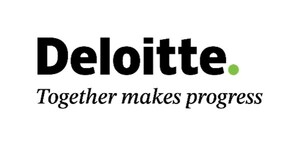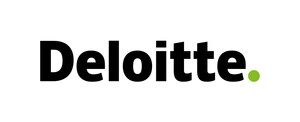
NEW YORK, Jan. 28, 2013 /PRNewswire/ -- The Deloitte Center for the Global Food Value Chain (the Center), a source of insights and analysis designed to help companies in the food and beverage business understand the changing regulatory environment, reduce risk and address supply chain issues, debuted today and issued a series of research papers to help companies comprehend and comply with the Food Safety Modernization Act (FSMA) signed into law in January 2011.
(Logo: http://photos.prnewswire.com/prnh/20120803/MM52028LOGO-a )
(Logo: http://photos.prnewswire.com/prnh/20120803/MM52028LOGO-b )
The Center also addresses broad and varied food safety and quality issues, including changing regulations besides FSMA, market trends, supply chain risk, operational impacts, and use of business analytics to help improve performance.
"Deloitte's Center for the Global Food Value Chain is designed to provide companies information on the changing food regulatory environment, help companies reduce risk within their organization and across their supply chain, as well as explore the use of technologies and analytics to allow for improved performance and better decision making," said Elise Gautier, principal, Deloitte & Touche LLP and co-leader of the Deloitte Center for the Global Food Value Chain. "We have established a network of experienced industry and regulatory business advisors and former government agency executives to share valuable perspectives on various food-related matters."
"Preventing foodborne illnesses is at the heart of today's sweeping regulatory reform of the U.S. food industry. FSMA's biggest challenge may be the adoption of mandatory compliance programs that exert a global reach," explains James C. Cascone, principal, Deloitte & Touche LLP, co-leader of the Deloitte Center for the Global Food Value Chain, national leader of Deloitte's food & product safety practice and Deloitte's national restaurant industry leader.
Cascone continues, "There is a need for improved supplier transparency globally, and enhancing product traceability throughout the value chain may impact business relationships, sourcing practices and growth strategies. The new regulatory environment may increase the cost of compliance, but also presents a unique opportunity for food and beverage companies to transform current operational practices and position their businesses for competitive advantage."
Below is a summary of four reports available today on the Deloitte Center for the Global Food Value Chain webpage at www.deloitte.com/us/foodvaluechain
- Food Safety. A year in review: 2012 issues, challenges, and forward momentum
The recall profiles in 2012 were not very different from 2011 or previous years. Consumer risk, brand risk and economic liability due to poor execution of appropriate food safety measures remain a concern for the nation's food supply. Proper execution of critical food safety programs remains an issue for industry and regulators alike in 2013. FSMA aims to safeguard the safety of the U.S. food supply, primarily through science- and risk-based preventive controls. Starting in 2013, FSMA requires the U.S. Food and Drug Administration (FDA) to undertake more than a dozen rulemakings, issue industry and topic relevant guidance documents as well as undertake a number of tactical and strategic plans to help with the enactment and enforcement of the new FSMA rules. This report reflects on some significant food incidents that took place in 2012 and explore what may lay ahead for the food industry. - "The Need for Food Defense in the Post-9/11 Era: Can the Risk be Ignored?"
Presented in two parts, "Food Safety" focuses on the protection of food products from unintentional contamination by an agent reasonably likely to occur in the food supply (e.g., E coli, Salmonella, Listeria). "Food Defense" is the protection of food from intentional contamination by biological, chemical, physical, or radiological agents that are not reasonably likely to occur in the food supply. The food and beverage industry is struggling how to approach food defense. FSMA is the first regulatory law to use the term "food defense" and to provide the U.S. Food and Drug Administration with that direct regulatory authority. Even though the regulations for food defense under FSMA have not yet been proposed, there are a number of basic security tools and programs that should be put in place and may provide an increased level of protection against intentional contamination incidents. - "Conflict Minerals: The 10-minute guide"
What is in the packaging of my food could trigger additional disclosures to the SEC and to a company's customers. The U.S. Congress signed the Dodd-Frank Wall Street Reform and Consumer Protection Act into law on July 21, 2010. Section 1502 of the Act aims at deterring — through increased transparency of companies' sourcing practices — the extreme violence and human rights violations in the Democratic Republic of Congo and neighboring countries, which are funded by the exploitation and trade of certain minerals. These minerals are very often found in food packaging and, hence, may require, in certain instances, companies to take a few steps to disclose the source of origin of the minerals used in their packaging. The guide provides an overview of the rule and considerations for companies to understand the course of action to take to comply with this new regulation. - "Supply chain risk strategies for emerging markets: Understanding the importance of risk"
As economic growth stagnates in developed economies, companies are seeking growth opportunities in what are known as the emerging markets that are growing at near double-digit rates. However, risks also continue to grow, especially across supply chains, requiring companies to implement strategies to reduce risks and costs. Companies should understand the differences in the supply chain and operational risks that exists within each country and region and identify strategies and solutions for managing vulnerabilities and mitigating risk.
About the Deloitte Center for the Global Food Value Chain
Businesses across the consumer products, retail and distribution industries face issues that impact operations, supply chain, food safety, quality assurance and risk management functions. The Deloitte Center for Global Food Value Chain leverages Deloitte's experienced industry and regulatory business advisors and former executives from government agencies. This Center is designed to help companies understand and address quality and safety issues, changing regulations, market trends, supply chain risk, operational impacts, and use of business analytics to improve performance. Deloitte's goal is to establish a resource for companies to share ideas and gain valuable insights that will help advance food safety and quality. For more information, visit www.deloitte.com/us/foodvaluechain.
As used in this document, "Deloitte" means Deloitte LLP and its subsidiaries. Please see www.deloitte.com/us/about for a detailed description of the legal structure of Deloitte LLP and its subsidiaries. Certain services may not be available to attest clients under the rules and regulations of public accounting.
| Contact: |
|
| Daniel Mucisko |
Maggie Edinger |
| Public Relations |
Hill + Knowlton Strategies |
| Deloitte |
+1 212.885.0370 |
| +1 973 602 4126 |
|
SOURCE Deloitte






Share this article